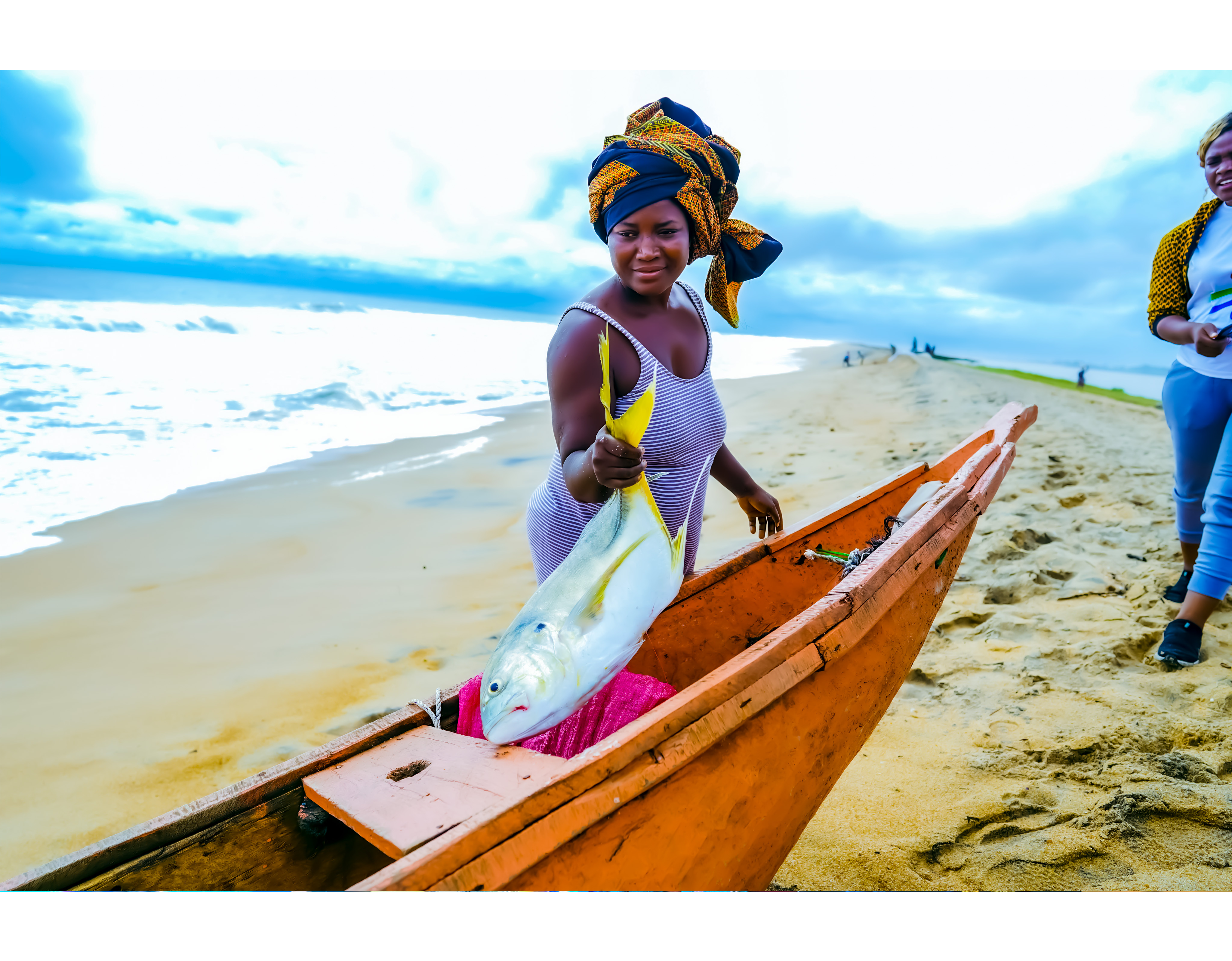Adapting to Climate Change Induced Coastal Risks Management in Sierra Leone

What is the project about?
This is a Full-Size Project (FSP) along the coastal zone, in six different pilot sites (Conakry Dee, Lakka, Hamilton, Tombo, Shenge, and Turtle Island) aiming to utilize solutions developed at national and sub-national levels for sustainable management of natural resources, ecosystem services, chemicals, and waste; Scale up action on climate change adaptation and mitigation across sectors; promote Inclusive and sustainable solutions adopted to achieve increased energy efficiency and universal modern energy access (especially off-grid sources of renewable energy); strengthen legal and regulatory frameworks, policies and institutions enabled to ensure the conservation, sustainable use, and access and benefit sharing of natural resources, biodiversity, and ecosystems, in line with international conventions and national legislation. The objective of this project, implemented by UNDP in collaboration with the Environmental Protection Agency (EPA SL), the Ministry of Fisheries and Marine Resources (MFMR) and the Institute of Marine Biology and Oceanography (USL-IMBO and the National Tourist Board (NTB) is designed to “Strengthen the ability of coastal communities to systematically manage climate change risks and impacts on physical infrastructure and economic livelihoods”. The project focuses on five of the national priorities presented in Sierra Leone’s National Adaptation Programme of Action (NAPA) submitted to the United Nations Framework Convention on Climate Change (UNFCCC), namely priorities interventions nº 2, 4, 14, 16 and 17.
Background
The continued vulnerability of coastal communities in Sierra Leone to climate-induced risks and related hazards is deemed a key problem. This is further exacerbated by the limited access to accurate and timely climate data and information, to help inform decision-making on the coast. This includes the requirement for new information to be available to enhance the resilience of vulnerable communities to climate-related risks, and from this, to aid the promotion of sustainable livelihood activities within coastal communities. In addition to this key problem, weak institutional regulatory capacity coupled with the absence of a national “coastal specific” community-based information system that focuses on supporting the management of climate-related risks continue to hamper long-term coastal planning, management, and early warning activities (particularly an increase in frequency and intensity of floods and severe storms and long term SLR). This thereby affects the ability of coastal communities to adapt to the pressures of climate change effectively and efficiently. The current limited capacity of Sierra Leone to manage climate information, to support the implementation of improved climate risk management decision-making, needs to be urgently addressed. The intended outcome of addressing this problem would be to help the Government of Sierra Leone (GoSL) to become more climate resilient while contributing towards achieving Sustainable Development Goals (SDGs). The introduction of innovative and resilient livelihood options to address the issue of sand mining along the coast of Sierra Leone shall provide a sustainable and economically viable solution that may be embraced by the GoSL and the construction sector. This latter issue is urgently required to help create new workable livelihood methods for coastal communities to embrace.

Photo showing constructed boardwalk at Aberdeen to promote eco-tourism sites and mangrove conservation
Expected Achievements
- Enhanced availability of high quality climate risk information that is critical for development decision-making in the coastal zone
- Appropriate protection measures, policy, budgeting and legal tools and integrated coordination mechanisms developed to improve and support policy design and implementation in dealing with current and long-term coastal challenges
Related Materials
Impact
Key Results
Explore more

 Locations
Locations




